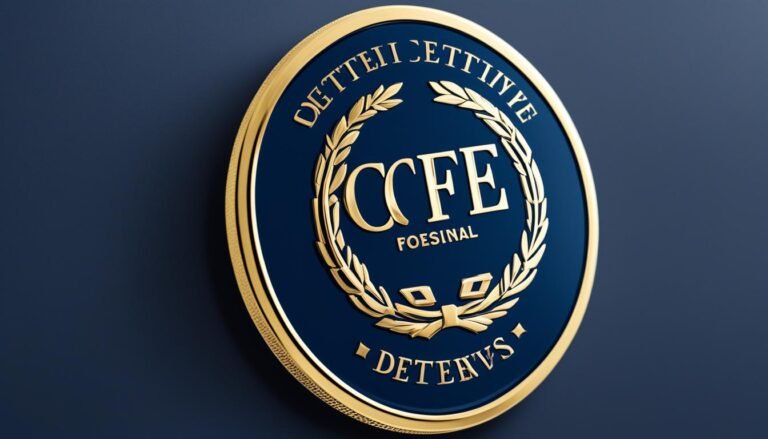Top Master of Science in Financial Technology and Analytics (MSFTA) Degrees
Did you know financial technology is in high demand now? As finance goes digital, skilled people are needed. If this field excites you, consider getting a top MSFTA degree. It can lead to many job opportunities.
Choosing the right finance technology master’s program is key. This article shows the best MSFTA degrees and programs. They will give you knowledge and skills to succeed in fintech and analytics. Let’s jump in!
Key Takeaways:
- The demand for financial technology professionals is growing rapidly.
- Earning a top MSFTA degree can lead to a wide range of career opportunities.
- Choosing the right program is crucial for acquiring in-depth knowledge and practical skills.
- Best MSFTA programs offer comprehensive education in finance technology and analytics.
- These programs can equip you with the skills to thrive in the rapidly evolving fintech industry.
Overview of the UC3M and Stevens MSFTA Program
The Master of Science in Financial Technology and Analytics (MSFTA) is offered jointly by UC3M and the Stevens School of Business. This partnership benefits students by providing a diverse range of expertise and resources. It improves their learning and career opportunities.
During the first year, students study full-time at UC3M. They take classes from the MSc in Finance program. This year focuses on building a strong finance foundation. It gets them ready for the more advanced topics in the second year.
In year two, students move to the Stevens School of Business. They join the MS in Financial Technology and Analytics program. This stage deep dives into specialized courses. It helps students develop the skills needed in finance, where technology and analytics are crucial.
After finishing the program successfully, students get diplomas from both institutions. This shows they have in-depth knowledge and skills in finance technology and analytics.
The UC3M and Stevens MSFTA program offers students several advantages:
- Focus on Innovation: The program is highly focused on innovation in finance technology. It ensures students are up to date with the industry’s latest. This prepares them to solve finance’s evolving challenges using advanced technology and analytics.
- Diverse Skill Set: Students in the program learn about finance, technology, and analytics. This blend creates a highly marketable set of skills. Graduates are ready to handle complex financial issues and lead innovation in organizations.
- Broader Career Opportunities: The MSFTA program opens doors to many career paths in finance and technology. It helps students become quantitative analysts, data scientists, financial consultants, and more. Its wide-ranging curriculum makes students versatile, ready to excel in different roles.
The combined expertise and resources of UC3M and the Stevens School of Business make the MSFTA program a top choice. It is perfect for those who wish to combine their interest in finance and technology. Students get a high-quality education and a strong advantage in the job market.
Curriculum and Concentrations in the MSFTA Program
The MSFTA program prepares students for top jobs in financial technology and data science. It mixes core courses with unique concentrations for a deep understanding. This helps students keep up with industry updates and be ready for their careers.
Financial Data Science Concentration
The Financial Data Science concentration uses data analysis and machine learning in finance. Students learn to analyze data, build models, and make smart business choices. As the finance world relies more on data, skilled data scientists are needed.
Financial Technology Concentration
The Financial Technology concentration is for those curious about new tech in finance. It covers blockchain, cryptocurrency, and artificial intelligence. Students become tech-savvy, ready to face fintech’s future challenges.
Each concentration offers special courses. This allows students to choose based on their interests. They can also pick electives to deepen their knowledge in specific areas. This makes their education more personalized.
The MSFTA is all about tailoring knowledge to individual goals. Whether it’s Data Science or Financial Technology, graduates leave with strong finance and tech skills. This gives them a head start when entering the job market.
Courses in the Financial Data Science Concentration
The Financial Data Science concentration helps students learn key data science skills. They get real-world experience with analyzing financial data. This includes using tools like R and Python.
- FA 582: Foundations of Financial Data Science: This course teaches the basics of financial data science. It covers collecting, cleaning, and analyzing data. Students also learn how to use statistics and machine learning to find insights.
- FE 513: Practical Aspects of Database Design: In this class, students learn to design and use databases for financial data. They also learn how to improve database performance and keep data safe.
- FA 590: Statistical Learning in Finance: This class dives into using statistics in finance. It covers things like regression analysis and forecasting with time series data.
- FE 511: Introduction to Bloomberg & Thomson-Reuters: Here, students learn to use big financial data platforms. They practice using real-time market data and analytical tools to make financial choices.
- FE 515: Introduction to R: This course teaches the R programming language. It’s used for working with financial data, doing stats, and making visuals.
- FE 520: Introduction to Python for Financial Applications: In this class, students are introduced to Python’s financial uses. They learn to write code, build models, and streamline data analysis.
These courses give students a solid foundation in financial data science. They become skilled in data analysis and can tackle finance issues. This helps them succeed in jobs focused on finance and analytics. They learn to make decisions using data and create new ways to innovate.
Courses in the Financial Technology Concentration
The Financial Technology program lets students become experts in the fast-changing world of financial tech. This program includes both core and specialized courses. This mix helps students build on their knowledge and skills in financial technology.
Course Selection
Students in this program can take courses like:
- FA 582: Foundations of Financial Data Science
- FE 513: Practical Aspects of Database Design
- FA 590: Statistical Learning in Finance
- FE 511: Introduction to Bloomberg & Thomson-Reuters
- FE 515: Introduction to R
- FE 520: Introduction to Python for Financial Applications
These courses lay a solid groundwork in financial technology. They also teach practical skills for real-world use.
“The Financial Technology concentration equips students with the expertise needed to navigate the ever-changing landscape of financial technology and thrive in a digital world.”
The program offers a wide array of specialized courses. Topics include financial management, advanced corporate finance, and investment theory. There are also courses on financial technology methods and practices, and seminars on the latest trends.
These classes give students a deep understanding of the field’s challenges and opportunities. This prepares them for successful careers in financial technology.
Students’ Perspectives
Those who have finished the Financial Technology concentration praise its thorough curriculum. They note the practical skills they’ve acquired. Specialized courses are particularly valued for providing a competitive edge in the job market. They prepare students to contribute effectively in the financial technology sector.
| Course Number | Course Title |
|---|---|
| FA 582 | Foundations of Financial Data Science |
| FE 513 | Practical Aspects of Database Design |
| FA 590 | Statistical Learning in Finance |
| FE 511 | Introduction to Bloomberg & Thomson-Reuters |
| FE 515 | Introduction to R |
| FE 520 | Introduction to Python for Financial Applications |
Admission Requirements for MSFTA Program
The Master of Science in Financial Technology and Analytics (MSFTA) program has specific admission requirements that vary depending on the university and program. Typically, applicants are expected to meet the following criteria:
- Bachelor’s Degree: Prospective students should hold a bachelor’s degree in a relevant field such as finance, economics, or computer science. This ensures a strong foundational knowledge for advanced studies in financial technology and analytics.
- Letters of Recommendation: Many MSFTA programs require applicants to submit letters of recommendation. These letters should come from individuals who can attest to the applicant’s academic abilities, work experience, or potential for success in the program.
- Statement of Purpose: A statement of purpose is a critical component of the application process. This document allows prospective students to explain their motivations for pursuing an MSFTA degree and how it aligns with their career goals.
- Standardized Test Scores: Some MSFTA programs may require standardized test scores, such as the GRE (Graduate Record Examination) or GMAT (Graduate Management Admission Test). These test scores help evaluate an applicant’s aptitude and readiness for graduate-level coursework.
- English Language Proficiency: International students may need to demonstrate English language proficiency through tests like the TOEFL (Test of English as a Foreign Language) or IELTS (International English Language Testing System).
To get into a top MSFTA program, it’s vital to know the admission rules. By making sure your documents are in order and showing off your high grades, you can boost your chances of getting in. This program is quite competitive, so doing your best is key.
Career Opportunities for MSFTA Graduates
MSFTA program graduates have many paths in the finance and tech field. They’re equipped to do well in various positions. Here’s a look at the exciting jobs they can go for:
- Quantitative Analyst: Use their skills to build models and strategies.
- Data Scientist: With a focus on data analytics, extract insights that drive decisions.
- Financial Consultant: Offer advice in areas like risk management and investment.
- Corporate Finance Manager: Lead financial operations and make strategic decisions.
- Financial Engineer: Design complex financial products using their knowledge.
- Risk Analyst: Work on identifying and lessening risks in the financial world.
These roles are available in many sectors. This includes fields like investment banking and cutting-edge fintech. Fintech areas like algorithmic trading and blockchain hold many opportunities.
The world of financial technology is changing fast. It continues to need professionals with the right skills. Getting an MSFTA degree can lead to a fulfilling career in this dynamic industry.
| Role | Description |
|---|---|
| Quantitative Analyst | Utilize analytical skills and financial technology knowledge to develop models and strategies. |
| Data Scientist | Extract meaningful insights from large datasets to drive business decisions. |
| Financial Consultant | Provide expert advice and solutions in risk management, investments, and financial technology. |
| Corporate Finance Manager | Oversee financial operations and guide strategic decision-making within organizations. |
| Financial Engineer | Design and develop complex financial products and systems using finance and technology skills. |
| Risk Analyst | Identify and mitigate potential risks in investment portfolios and financial transactions. |
Stevens Institute of Technology Overview
In Hoboken, New Jersey, you’ll find Stevens Institute of Technology, a top private research university. It’s known for its focus on tech innovation and entrepreneurship. Students can choose from many programs in areas like financial technology and data science.
The school mixes tech with business in its teaching. This blend helps students connect with industries early on. They get practical skills and make job contacts, boosting their career development.
Stevens’ programs in financial technology and data science are top-notch. They help students blend finance, tech, and analytics knowledge. Graduates are well-prepared to face the finance world’s ongoing changes.
Interdisciplinary Approach to Education
At Stevens, students learn across different fields. They study tech, business, and finance together. This mix makes them stand out to potential employers.
The school’s focus on critical thinking and innovation is a big plus. It’s designed to help students solve real financial issues. They leave with a solid grasp of financial technology and data science’s ins and outs. Employers really want to hire them.
Stevens Institute of Technology offers a transformative learning experience, empowering students to become leaders in the field of financial technology and data science.
Industry Connections and Real-World Experience
Stevens has strong ties with tech and finance big names. This means students get to apply their skills in the real world. They can do internships or work on research with these partners.
Partnerships with top companies offer students amazing chances. They can work on cutting-edge projects. This boosts their problem-solving skills and enlarges their professional network.
Diverse Programs in Financial Technology and Data Science
The university tailors its financial technology and data science programs to different student needs. It offers everything from master’s degrees to executive courses. This wide choice helps every student find the right path.
Stevens shines with its specific programs. These include master’s degrees in financial technology and analytics. It also offers executive education in data science and business analytics. Whatever your career dreams, Stevens has the program to get you there.
In Summary
Stevens Institute of Technology leads in tech and entrepreneurship. Thanks to its ties with industry, cross-field teaching, and varied programs, it’s where future finance and tech leaders learn. Graduates are prepared to shape the finance world. They’re set to do great things in financial technology.
About the Olin Business School MSA Program
The Olin Business School offers the prestigious MSA program. It focuses on the skills needed to succeed in data analytics. Students learn technical programming and how to think analytically.
This program helps students become experts in finding important insights in large data sets. They learn how to solve complex business issues with data. The curriculum includes statistical analysis, data visualization, and more.
What’s unique about Olin’s MSA program is its focus on solving real business problems. Students not only understand data but also learn to use it in business strategies. They develop critical thinking and communication skills.
The program looks at data analytics in many industries like retail, healthcare, and finance. This makes sure graduates are ready for different kinds of jobs.
“The Olin MSA program gave me the tools and knowledge I needed to excel in the field of data analytics. The curriculum provided a comprehensive understanding of the technical aspects, while also emphasizing the practical application of data analysis in solving business problems.”
– Sarah Thompson, MSA Graduate
Students work on real projects, getting practical experience. They learn in groups, sharing ideas with professionals and peers. This helps them get ready for jobs where teamwork is essential.
The Olin MSA program is known for preparing graduates for data and business challenges. Employers value their mix of technical and business skills. These graduates are in high demand.
No matter your background, the Olin MSA program can lead you to success in data analytics. It’s a great choice for students interested in this fast-changing field.
| Key Features of the Olin Business School MSA Program | Benefits for Students |
|---|---|
| 1. Rigorous curriculum covering statistical analysis, data visualization, and machine learning techniques | * Expanding technical skills in data analytics |
| 2. Emphasis on business problem-solving and translating insights into actionable strategies | * Developing critical thinking and communication skills |
| 3. Real-world project experience and collaboration with industry professionals | * Gaining hands-on experience and building professional networks |
| 4. Multidimensional approach covering various industries | * Versatile career opportunities in retail, healthcare, finance, and more |
| 5. Strong alumni network and job placement support | * Access to a network of successful professionals in the field |
Specialized Tracks in the Olin MSA Program
The Olin MSA program has six tracks for those interested in data analytics. Each track helps you study deeply in a specific area. This knowledge prepares students for their future careers. The tracks give them the skills they need to succeed.
The Olin MSA program has these specialized tracks:
- Customer Analytics
- FinTech Analytics
- Supply Chain Analytics
- Healthcare Analytics
- Accounting Analytics
- Talent Analytics
These tracks focus on different fields. They help students learn skills needed for various jobs. Whether you want to study customer behavior, manage finances, work with supply chains, or do healthcare analysis, there’s a track for you. Each track helps students achieve their career goals.
Let’s see what each track offers:
Customer Analytics
The customer analytics track focuses on understanding customers. Students learn how to look at customer data. They use this to make businesses better for customers.
FinTech Analytics
The FinTech analytics track is about finance and technology. Students study how technology is changing finance. They learn skills that are important for the finance industry of the future.
Supply Chain Analytics
The supply chain analytics track teaches students about managing supply chains. They learn how to use data to make supply chains work better. This track helps students improve businesses through smart planning.
Healthcare Analytics
Healthcare analytics is about improving health services with data. Students in this track learn how to use data in healthcare. They study how to make healthcare more effective and personal.
Accounting Analytics
The accounting analytics track looks at financial data in new ways. Students learn to use tools on financial data. They can help make better financial decisions and reports.
Talent Analytics
Talent analytics is about using data in human resources. Students learn to use data about workers. They can help businesses find and keep the best people.
The Olin MSA program lets you pick the track that interests you most. By studying a track, you become an expert in that field. This makes you very valuable to employers. Choose a track in the Olin MSA program and begin an exciting journey in data analytics.
| Specialized Track | Description |
|---|---|
| Customer Analytics | Focuses on understanding customer behavior, preferences, and market trends to drive satisfaction and business growth. |
| FinTech Analytics | Prepares students to innovate and transform the finance industry using advanced analytics and emerging technologies. |
| Supply Chain Analytics | Enables students to optimize supply chain operations through data-driven decision-making and process improvement. |
| Healthcare Analytics | Equips students with the skills to make data-driven decisions in healthcare management and delivery. |
| Accounting Analytics | Focuses on utilizing data analytics and technology to enhance financial reporting, auditing, and decision-making. |
| Talent Analytics | Equips students to leverage data and analytics in strategic human resource decision-making. |
Orientation Programs and Foundation Courses at Olin
Olin Business School welcomes new students to the Specialized Master’s Programs (SMP). We make sure they smoothly adjust with our orientation program. This program supports their academic, personal, and professional growth.
The SMP orientation program has three key parts:
- SMP Start: It introduces students to the university’s resources and services. They get a full picture to help them join the academic life smoothly.
- SMP Orientation Week: This is a week filled with workshops and program overviews. It helps students understand what’s ahead. They also meet their classmates, starting strong friendships.
- Career Stamp: Career preparation is important to us. Career Stamp is part of our program. It helps students with their job search in financial technology and analytics. They get to attend workshops and receive career advice.
Before the SMP starts, students also take online foundation courses. These courses are meant to boost their academic skills. They ensure that everyone has a strong knowledge base when they begin their degree.
At Olin Business School, we know a good start is crucial for success. A solid academic base, the orientation program, and the foundation courses are all part of our support. We aim to give our students an excellent beginning for their studies and careers.
| Orientation Programs | Highlights |
|---|---|
| SMP Start | Introduction to university resources and facilities |
| SMP Orientation Week | Workshops and overviews of the program |
| Career Stamp | Guidance and support in career search and preparation |
Conclusion
Earning a Master of Science in Financial Technology and Analytics (MSFTA) degree is a smart move. It gives students a deep understanding in finance and tech. These programs are top-ranked and arm grads with skills to thrive in finance’s fast-changing world.
The finance industry is seeing a big need for fintech experts. Getting an MSFTA degree leads to exciting job chances. This holds true in traditional finance and new fintech fields.
People who get ahead in fintech careers know market trends well. They have strong financial tech skills and understand data analysis. Jobs like quantitative analysts, data scientists, or financial consultants are perfect for MSFTA grads.
Fintech is changing finance as we know it. Top MSFTA degree holders are key to its future. They use new technology knowledge to innovate and meet industry needs. This makes their skills very valuable.
FAQ
What is the MSFTA program?
The MSFTA program stands for Master of Science in Financial Technology and Analytics. It gives a deep dive into finance technology and analytics. This program is a thorough graduate study.
What are the career opportunities for MSFTA graduates?
MSFTA graduates have many paths in finance technology and analytics. Opportunities include being a quantitative analyst, financial consultant, or a risk analyst.
What are the admission requirements for the MSFTA program?
To get into the MSFTA program, you need a bachelor’s degree. Applicants should have studied fields like finance, economics, or computer science. They must also provide letters of recommendation and a statement of purpose. Standardized test scores, like the GRE or GMAT, are often required too.
What are the curriculum and concentrations in the MSFTA program?
The MSFTA program covers finance technology and data science broadly. Students can pick the Financial Data Science or Financial Technology concentration.
What courses are included in the Financial Data Science concentration?
The Financial Data Science concentration has courses such as FA 582: Foundations of Financial Data Science. There’s also FE 513: Practical Aspects of Database Design, and FA 590: Statistical Learning in Finance. Students learn about Bloomberg and Thomson-Reuters in FE 511. They also use R (FE 515) and Python (FE 520) for finance work.
What courses are included in the Financial Technology concentration?
The Financial Technology concentration shares core courses with Data Science. It covers areas like financial management, corporate finance, and investment theory. Students study financial technology methods and have a seminar in this field.
What is Stevens Institute of Technology known for?
The Stevens Institute of Technology is in Hoboken, New Jersey. It’s known for focusing on innovation and entrepreneurship. It is a leading private research university.
What is the Olin Business School MSA program?
Washington University’s Olin Business School offers a Master of Science in Business Analytics program. Known as MSA, it combines programming with solving business problems. It’s a rigorous program.
What specialized tracks are available in the Olin MSA program?
Olin MSA has six tracks for students to specialize in data analytics. These tracks include customer analytics, FinTech analytics, and healthcare analytics. There’s also supply chain, accounting analytics, and talent analytics.
What do the orientation programs at Olin involve?
Olin’s orientation for SMP students includes SMP Start, introducing the university. SMP Orientation Week has workshops and program overviews. Career Stamp focuses on career preparation.
What are the benefits of earning a MSFTA degree?
Getting an MSFTA degree helps you innovate and gain a wide skill set. It opens doors to more jobs in finance and technology.








